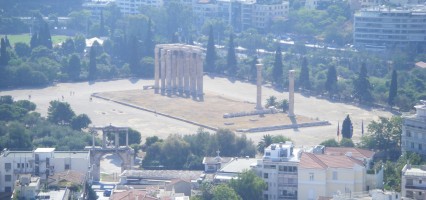Economic Reality and Greek Culture
You all know how modern Greece became bankrupt, how its population lives under extreme economic conditions, how the government is trying to pay off the debts (though, not that successfully). The IMF process demanded that the entire economy deflated, that the salaries and the prices were reduced, so that Greece became competitive again. Competitive in what, though? Since the euro entered our lives, most Greeks have been living on borrowed money and time. They neither created products nor offered ... »

